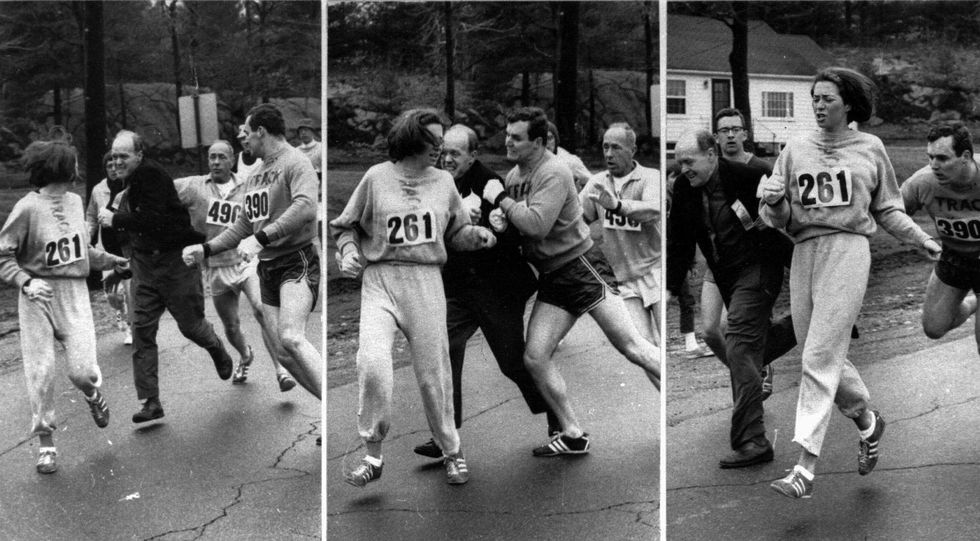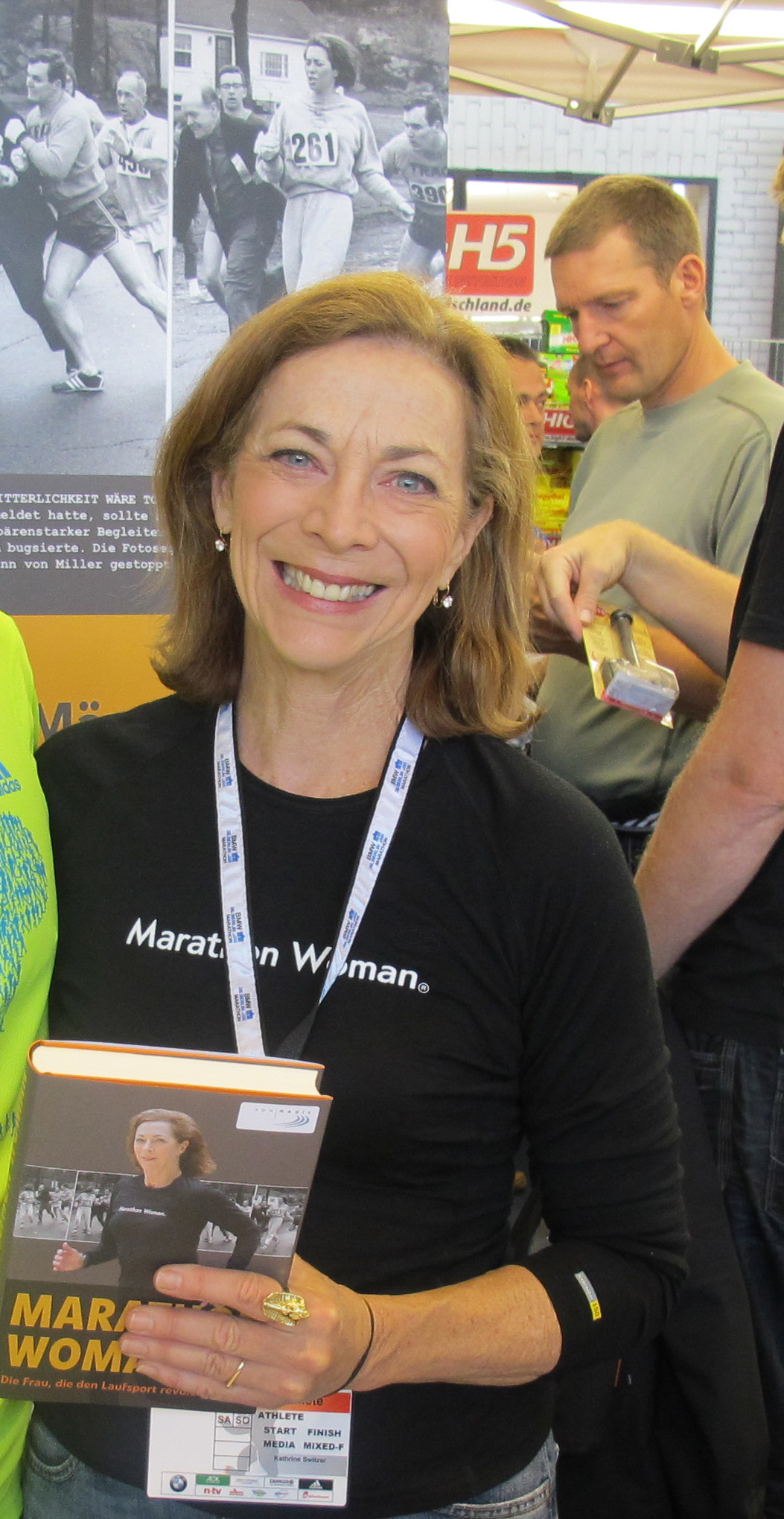“In the race, I kept wondering why other women didn’t run and then it dawned on me that they were afraid to try because they’d been told all these myths of limitation and believed them.”
– Kathrine Switzer

Kathrine Switzer registered for the 1967 Boston Marathon. For the previous 70 years, the Boston Marathon had been an all-male event. Women were not banned from the event by the Amateur Athletic Union (AAU), the sport’s governing body. The rule book made no mention of gender. So Switzer, a 19-year-old journalism student at Syracuse University, signed up, using her customary signature ‘K.V. Switzer’ and AAU number.
She wasn’t there to make a political statement about a woman’s right to compete in a men-only event. She was a 20- year-old Syracuse University junior who wanted to prove to herself and her coach she was capable of running 26.2 miles.
An accomplished athlete, Switzer would run as a team with her coach Arnie Brigg, a veteran of 15 Boston Marathons, her boyfriend, ex–All American football player and nationally ranked hammer thrower known as Big Tom Miller, and John Leonard, from the university cross-country team. On April 19, 1967, the foursome ate “everything” for breakfasts – “bacon, eggs, pancakes, juice, coffee, milk, extra toast” – and headed to the race. It was a cold day. Rather than wear her burgundy race shorts and vest, Switzer kept on her sweater. A few men noticed the presence of the only female athlete. “You going all the way?” asked one. “I tried to stay low-key,” said Switzer years later. “I sure didn’t want any attention at this moment, but I tried to be accommodating, even when one runner insisted on having his wife, on the other side of the fence, take our photo together.”
And then they were off. The four ran side by side. People shouted encouragement. Media passed on flatbed truck. She was spotted. They started to take her picture. And then:
A man with an overcoat and felt hat was then in the middle of the road shaking his finger at me; he said something to me as I passed and reached out for my hand, catching my glove in¬stead and pulling it off. I did a kind of stutter step, we all had to jostle around him. I thought he was a nutty spectator, but when I passed I caught a glimpse of a blue and gold BAA ribbon on his lapel. Where had he come from?
That’s the Boston Athletics Association. The man was the race manager, Jock Semple.
Moments later, I heard the scraping noise of leather shoes coming up fast behind me, an alien and alarming sound amid the muted thump thumping of rubber-soled running shoes. When a runner hears that kind of noise, it’s usually danger – like hearing a dog’s paws on the pavement. Instinctively I jerked my head around quickly and looked square into the most vicious face I’d ever seen. A big man, a huge man, with bared teeth was set to pounce, and before I could react he grabbed my shoulder and flung me back, screaming, “Get the hell out of my race and give me those numbers!” Then he swiped down my front, trying to rip off my bib number, just as I leapt backward from him. He missed the numbers, but I was so surprised and frightened that I slightly wet my pants and turned to run. But now the man had the back of my shirt and was swiping at the bib number on my back. I was making little cries of aa-uh, aa-uh, not thinking at all, just trying to get away, when I saw tiny brave Arnie bat at him and try to push him away, shouting, “Leave her alone, Jock. I’ve trained her, she’s okay, leave her alone!” And the man screamed, “Stay out of this, Arnie!” and swatted him away like a gnat.
Tom then arrived, and hit Semple, who “landed on the roadside like a pile of wrinkled clothes”. What should have been a great day of personal achievement had turned sour.
“I knew if I quit, nobody would ever believe that women had the capability to run 26-plus miles,” she recounts. “If I quit, everybody would say it was a publicity stunt. If I quit, it would set women’s sports back, way back, instead of forward. If I quit, I’d never run Boston. If I quit, Jock Semple and all those like him would win. My fear and humiliation turned to anger.”
Switzer finished the race in 4 hours and 20 minutes.
As a result of her run, the AAU barred women from taking part in races with men. It took five more years before the Boston Marathon ran its first official women’s race.
She went on to run 39 marathons, winning the New York City Marathon in 1974. In 2017, Switzer ran the Boston Marathon again at the age of 70. She wore her same race number 261 as she had in 1967.

Kathrine Switzer at the 2011 Berlin Marathon expo
Would you like to support Flashbak?
Please consider making a donation to our site. We don't want to rely on ads to bring you the best of visual culture. You can also support us by signing up to our Mailing List. And you can also follow us on Facebook, Instagram and Twitter. For great art and culture delivered to your door, visit our shop.

